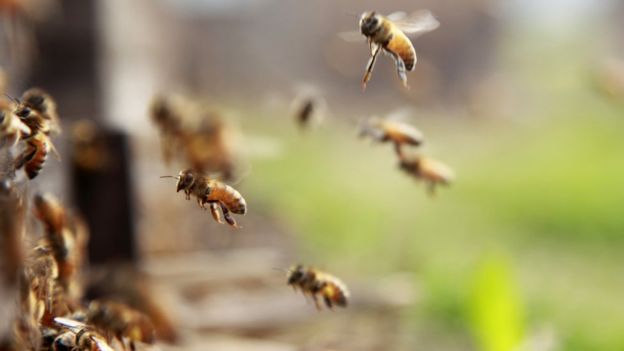Alarm over decline in flying insects
Science & Environment

It's known as the windscreen phenomenon. When you stop your car after a drive, there seem to be far fewer squashed insects than there used to be.
Scientists have long suspected that insects are in dramatic decline, but new evidence confirms this.
Research at more than 60 protected areas in Germany suggests flying insects have declined by more than 75% over almost 30 years.
And the causes are unknown.
"This confirms what everybody's been having as a gut feeling - the windscreen phenomenon where you squash fewer bugs as the decades go by," said Caspar Hallmann of Radboud University in The Netherlands.
"This is the first study that looked into the total biomass of flying insects and it confirms our worries.''
The study is based on measurements of the biomass of all insects trapped at 63 nature protection areas in Germany over 27 years since 1989.
The data includes thousands of different insects, such as bees, butterflies and moths.
Scientists say the dramatic decline was seen regardless of habitat, land use and the weather, leaving them at a loss to explain what was behind it.
They stressed the importance of adopting measures known to be beneficial for insects, including strips of flowers around farmland and minimising the effects of intensive agriculture.
And they said there was an urgent need to uncover the causes and extent of the decline in all airborne insects.
"We don't know exactly what the causes are,'' said Hans de Kroon, also of Radboud University, who supervised the research.
''This study shows how important it is to have good monitoring programmes and we need more research right now to look into those causes - so, that has really high priority.''
The finding was even more worrying given that it was happening in nature reserves, which are meant to protect insects and other living species, the researchers said.
''In the modern agricultural landscape, for insects it's a hostile environment, it's a desert, if not worse,'' said Dr de Kroon.
''And the decline there has been well documented. The big surprise is that it is also happening in adjacent nature reserves.''
